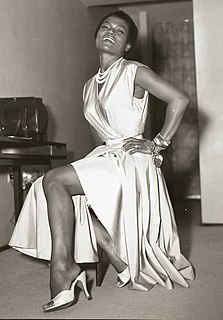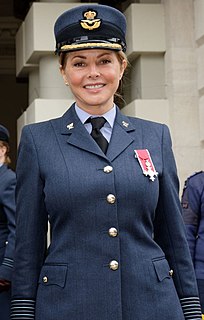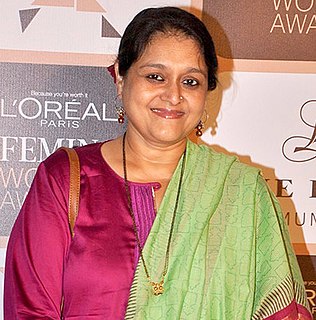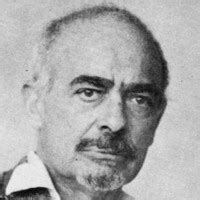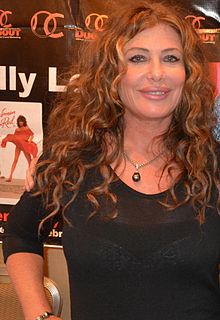A Quote by Paul Auster
Most of the boys would come with bits of equipment that their fathers had given them from their war days - helmets, canteens, binoculars, these kinds of things - that leant a kind of authenticity to the games we were playing. But, of course, my father never gave me anything. So I began to question him. You know, Why don't you have anything from the war? And I think he was...embarrassed to tell me he hadn't fought, because, you know, little boys want to turn their fathers into heroes, and he didn't want to be diminished in my eyes.
Related Quotes
I had a question asked of me the other day, and this is asked of me a lot, surprisingly. 'Is there anything you want that you can't have?' And I said, 'Of course! What kind of question is this? Of course there is.' There's any number of things that I would like to have that I either can't afford or it doesn't make sense to buy. You know, I'd love to have world peace.
There was a great strain in our family because my father didn't want anything to do with me. He was happy to see my brother and sister, but not me. I don't know why. Maybe it was shame. I don't know. But he never wanted anything to do with me. That rejection was terribly hurtful and it went on for years.
Most of my friends' fathers had been in the war - either as soldiers or in some other capacity in the military. Whereas my father had not fought. He was older and he was in a business that was considered essential to the wartime effort - the wire business - and, of course, I was so young I didn't understand any of this.
I'm always touched when I go to events and stuff, to meet fathers who come up to me and thank me and say, "because of you my young daughter knows that she can do anything she sets out to do." And the way young girls are raised now, I don't think there's any doubt that they know they can do anything. And if what goes by the by is that they don't feel they have to be in solidarity with all other women, that's O.K. as long as they know that that strength has been there in the past and can be there in the future for them.
The war now is away back in the past, and you can tell what books cannot. When you talk, you come down to the practical realities just as they happened. You all know this is not soldiering here. There is many a boy here today who looks on war as all glory, but, boys, it is all hell. You can bear this warning voice to generations yet to come. I look upon war with horror, but if it has to come, I am there.
Once the war began, the government could do anything 'necessary' to win it; so it was with the 'final solution of the Jewish problem,' which the Nazis always talked about but never dared undertake, not even the Nazis, until war and its 'necessities' gave them the knowledge that they could get away with it. The people abroad who thought that war against Hitler would help the Jews were wrong. And the people in Germany who, once the war had begun, still thought of complaining, protesting, resisting, were betting on Germany's losing the war. It was a long bet. Not many made it.
The hardest bits of my book to read were the easiest bits to write because they were the most immediate. Probably because I had never stopped thinking about them on some level. Those bits I was just channelling and those were the most exciting writing days. The bits I found harder were the bits that happen in between, you know, the rest of living. There were whole years, whole houses, that I just got rid of.
The work that I've been trying to do with violence against women and children comes from seeing quite a bit of violence. I just think it's important that we try to help the young boys who are watching the fathers do it - because if it's OK for the fathers to do it, then these young boys are watching their dads and going, well, nothing's happening to them, so maybe this is OK. But actually, this violence needs to stop in the sandpits.
I think girls from a young age know what they want, and boys kind of have to keep up and catch up to them. Even in kindergarten, girls are pretty much the ones that like the boy first and the boys are like, 'Oh, I want to play with my trucks.' They think it's not cool. I think girls are definitely more ahead than boys.

